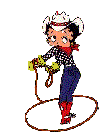Some believe that the more you practice pool, the more proficient you will become. And along with that, it is believed that you will do better under pressure in the long run. Here's a blog that describes how practicing pool may assist students in school. :smile:
Complicating our perceptions is professional sports. The whole point of professional athletics is assembling freaks of nature into teams and pitting them against other freaks of nature. Practice is obviously important in professional sports, but it won't make you taller. I suspect that professional sports demotivate viewers by sending the accidental message that success is determined by genetics.
My recommendation is to introduce eight-ball into school curricula, but in a specific way. Each kid would be required to keep a log of hours spent practicing on his own time, and there would be no minimum requirement. Some kids could practice zero hours if they had no interest or access to a pool table. At the end of the school year, the entire class would compete in a tournament, and they would compare their results with how many hours they spent practicing. I think that would make real the connection between practice and results, in a way that regular schoolwork and sports do not. That would teach them that winning happens before the game starts.
Source: Illusion of Winning Blog [Retrieved 26 July 2011]
This might be a way to get pool into schools. It is an interesting analogy: playing pool can help in school.
Complicating our perceptions is professional sports. The whole point of professional athletics is assembling freaks of nature into teams and pitting them against other freaks of nature. Practice is obviously important in professional sports, but it won't make you taller. I suspect that professional sports demotivate viewers by sending the accidental message that success is determined by genetics.
My recommendation is to introduce eight-ball into school curricula, but in a specific way. Each kid would be required to keep a log of hours spent practicing on his own time, and there would be no minimum requirement. Some kids could practice zero hours if they had no interest or access to a pool table. At the end of the school year, the entire class would compete in a tournament, and they would compare their results with how many hours they spent practicing. I think that would make real the connection between practice and results, in a way that regular schoolwork and sports do not. That would teach them that winning happens before the game starts.
Source: Illusion of Winning Blog [Retrieved 26 July 2011]
This might be a way to get pool into schools. It is an interesting analogy: playing pool can help in school.

![11-08-2009.nmc_08billards_01_Product.GGR2NFE8H.1[1].jpg](/data/attachments/140/140784-eb434033f0f3dd2e9143e8ee2cba6ca5.jpg?hash=60NAM_Dz3S)
